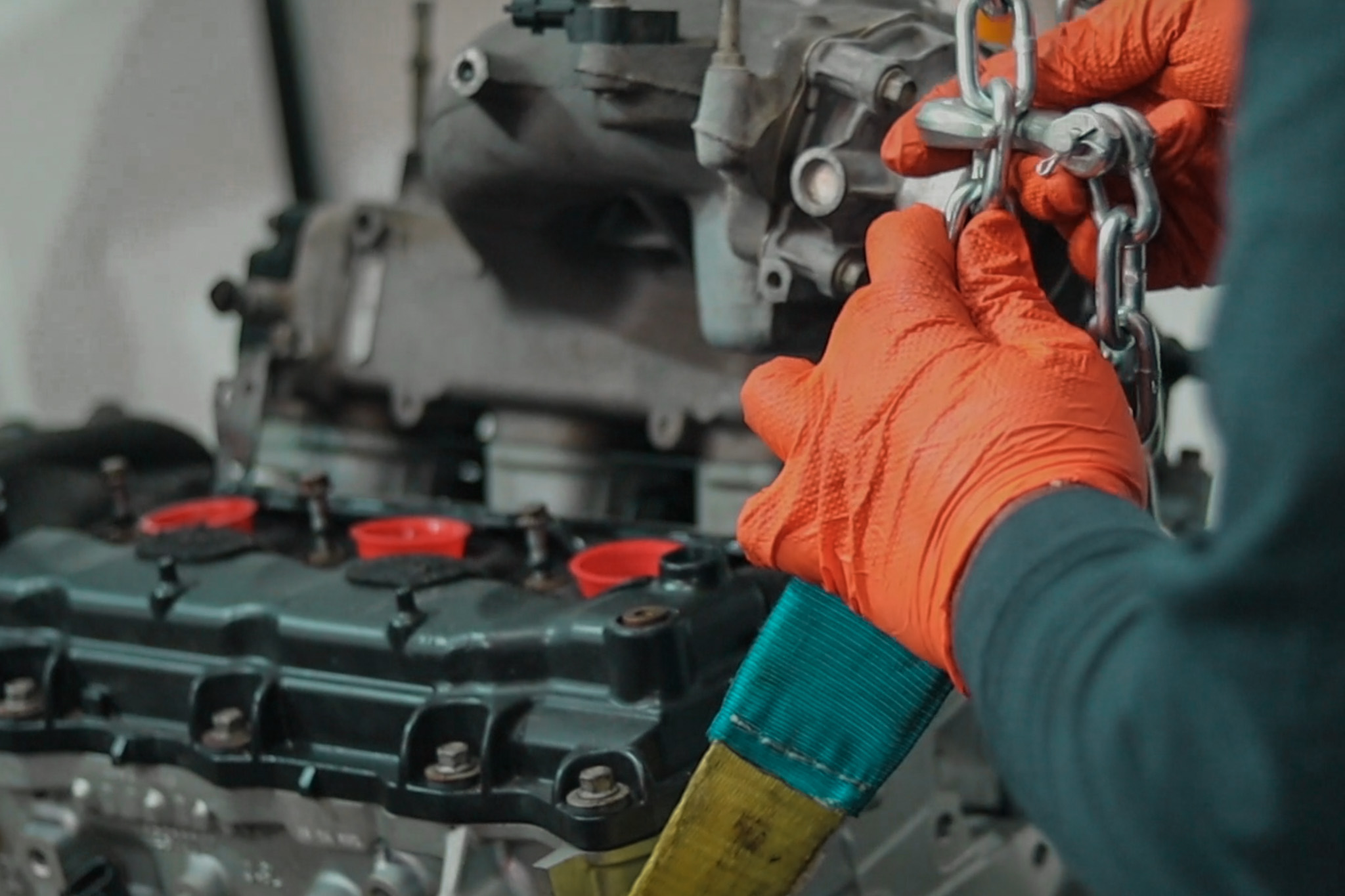Did you know it was illegal to repair your car in some states? But, the 2020 Right to Repair Act, passed in Massachusetts, makes it legal to repair and modify items you’ve bought yourself or through a repair shop of your choosing. In Massachusetts, the law is mostly about auto repair. As money continues to grow scarce, it’s important to maintain the freedom to extend the life of your car.
What is Right to Repair?
In 2012, Massachusetts passed an automotive right to repair law that gave independent repair shops the same access as dealers to vehicle information that’s used to diagnose and repair problems. This law ultimately led to a de facto national standard. This is because rather than need to pass a law in every state, automakers agreed to extend the Massachusetts law standards across the board.
However, the 2012 law didn’t include telematics data, which is real time information the car sends directly to dealers. When this law was passed, there wasn’t much telematic data available; only OnStar. OnStar was GM’s creation: the first widely adopted telematics application in North America. Other companies had their own version–does anyone remember Ford’s Wingcast? OnStar is the standard that stuck.

But What is Telematics?
Telematics looks at how cars and trucks function by using GPS technology and onboard diagnostics (OBD). It also follows the vehicles on a map.
Think: an intelligent computer in your car that reports on every detail: speeding, idling, fuel use, low tire pressure, etc. This info can help you save on maintenance costs and improving fuel efficiency by studying your driving habits. Carmakers have kept most of this information secret up until now.
What Does Telematics Have to do With You?
If car manufacturers and dealerships are the only people who can view this data, auto shops and home mechanics are at a disadvantage. With the passage of the Right to Repair act in Massachusetts, the door is open for the rest of the country to follow, leveling the playing field for mechanics and you to repair your car.

Growing Number of States Join Massachusetts
The tides may be changing, though. As of March 2019, California became the 20th state considering right to repair legislation. If California state bill AB 1163 passes, it would close a loophole in California’s warranty law and require companies to give consumers access to parts and service information.
Support for Right to Repair is growing. 25 states (and counting) all have pending legislation. Check the map to see if your state in onboard.
Some argue it’s not safe, some argue it’s a security risk, and others worry about copyright infringement.
But we believe that Right to Repair is an excellent idea because of freedom and financial savings.
Not Everyone Agrees
So far, not all states agree. It’s illegal in Sacramento, California to do anything more major than repairing a brake shoe in your own garage.
The code states that the repair must be minor, defined as “brake part replacement, minor tune-up, change of oil and filter, repair of flat tire, lubrication and other similar operations and cannot be performed outdoors if the repair would leave the vehicle inoperable for more than 24 hours.
The city is controlling people by limiting the repairs they can do to simple things. They have different excuses for this limitation, like property values, and chemical spills that can endanger peoples’ health. They also use vague language to enforce the code. This smacks of control, plain and simple.
Why Right to Repair is Good
Right to repair offers freedom to small repair shops and car owners. Offering the telematics to consumers will open them up to be able to control their own repair. You can repair your own car more effectively with the ‘secret data’ from your car’s telematics.
This will open up competition among repair shops to get that business. Now the dealerships must open up and share crucial car repair information, which will in turn foster competition. It will also open the door for you to repair your own cars. Before Right to Repair legislation, you didn’t have access to enough information to be able to repair your own cars.
How Right to Repair Impacts the Economy
Advocates for the right to repair argue that independent repair providers — often small “mom and pop” shops — are vital to local economies. They also say that if a manufacturer has what amounts to a monopoly on repair service, prices rise and quality goes down. With the playing field leveled, you can shop better prices for the same repairs. You can also choose to do the repair yourself—win win.
Safety Concerns
An Article on Manufacturing.net says that manufacturers are concerned that it is slow to work with their recommended parts, so customers would buy aftermarket parts, and then they are worried about safety. They think manufacturers should educate us about where to buy proper parts to avoid these problems.
Are the car companies really concerned about safety here? Or are they worried about their brand reputation? If people use non-recommended parts, will their failure (or success) negatively affect the brand? This seems more like a control issue than a safety issue.

Security Concerns
Security is highly regarded as one of the largest risks with adopting Right to Repair laws.
Automakers need to comply by their 2022 product line.
They worry that changing the way they make car in order to comply with right to repair would take a long time–decades, and would threaten security. They think opening up the telematics and securing the cars against cyber threats is too hard and unsafe.
The National Highway Traffic Safety Administration (NHTSA) testified: “the ballot initiative would prohibit manufacturers from complying with both existing Federal guidance and cybersecurity hygiene best practices.”
Be on the lookout for 2022
2022 is the year Right to Repair will come into play. According to Forbes Magazine, the cars from the 2022 model year have already been encrypted to secure data. The cars were not prepared to share it.
Think about it. If carmakers can keep information from you, they can also keep control from you. OnStar used to advertise how they could shut down cars from a remote location.
The Security Innovation Center – SIC
According to the Security Innovation Center, allowing customers to fix their own devices, rather than having OEMs repair internally will in-turn provide hackers with increased access and power.
A lot of the resistance to Right to Repair comes from the consumer electronics industry.
When Right to Repair extends to the consumer electronics industry, you’re going against companies that always try to maintain control of their devices, even after they sell them to you. When they start talking about how dangerous it would be to share their back-end software with you, remember how thy have nothing to say when they are hacked, and all your data is captured. And they don’t have anything to say when terrorists use their devices to wreak havoc.
These concerns are misguided. Just as security measures tend to secure devices against their owners, and are unable to prevent hackers and malware, keeping diagnostic codes, etc from consumers would only hurt them. Manufacturers would be better off seeking ways to fight bad actors.
Fear of Assault
The Drive—talks about a campaign from The Coalition for Safe and Secure Data to scare away support from Right to Repair by implying that telematics will tell stalkers and rapists where to find victims.
In reality, Right to Repair only grants access to technical, car related data, not personal or GPS information. Furthermore, data security expert Paul F. Roberts, founder of Securerepairs, went on record with Vice’s technology column Motherboard questioning whether this problem already exists with current telematics.

Some Fear Terrorism
In 2019, the FBI voiced their concerns about sharing telematics inviting terrorist threats.
Fear of terrorism is related to fear of assault. If the location data gets into the hands of the wrong people, they could disable thousands of cars, creating unthinkable damage, the argument goes. Manufacturers should work hard to prevent these kinds of events, rather than ways to tie the hands of their customers. Freedom is a better choice than oppression in the name of safety.
If you choose safety over freedom, you deserve neither.
Some Fear Copyright Infringement
When cars were just mechanical, there was no intellectual property issue. Now that cars have software diagnostic systems, they could fall under the Digital Millenium Copyright Act of 1988.
So are carmakers worried about third parties compromising their systems, or are they concerned about losing their monopoly? Bozi Tatarevic, an automotive writer/mechanic thinks they are more concerned with their dealer partnerships and want to help them bring in customers for their out-of-warranty repair work. With telematics widely available, that is business off the table for them. You could handle those repairs yourself.
Rigth to Repair is Good for the Environment
While California originally voiced concerns about the negative environmental impact of Right to Repair, (ie. how to dispose of hazardous chemicals, or unsightly landscapes), most environmental arguments are in favor of right to repair.
Repair.org suggests “reuse is the best green policy.” Equipment repair and reuse minimizes carbon emissions, material waste and much more.
All too often, usable products and device components are shredded or tossed away instead of being salvaged, fixed and reused. Products need to last longer, which includes optimizing electronics not only for the first owner, but also for the third, the fourth and the fifth owner through formal and informal reuse and repair.
Right to Repair is Good for Consumers
You and local mechanics are the big winners in teh Right to Repair victory. You can now repair your own vehicles or take them to your preferred mechanic. Local mechanics benefit from having access to newer vehicles. Your not having to run to dealer for every ‘check engine’ light is freedom indeed.
The Right to Repair movement states, : “Products that can be repaired should be repaired. Refurbished cell phones can be sold to someone new. Repaired computers bridge the digital divide. Even better, repair jobs are local. They won’t ever be shipped overseas.”
“Whenever voters are asked if they want more control over repair, or if they trust manufacturers—it’s not even close, and you get a clear indication of why Right to Repair is a winning idea. It’s time to let people fix their stuff,” proclaimed Nathan Proctor of The US Public Interest Research Group (USPIRG)

No Turning Back
I’m inclined to think that though dealers are reticent to give up total control of the vehicle, this can only help them in the long run by building up trust with their customers. Auto manufacturers are not creating false security concerns in order to maintain control. They are looking for repeat customers, and this is a way to have a subscription model. They should stick to leasing cars if that’s what they want. Once consumers get a taste of freedom to repair their own car, they won’t want to turn back.
One obstacle to wide-spread adoption of Right to Repair Laws is COVID 19. The pandemic scare has slowed everything down because of quarantines and social distancing mandates. Ironically, this fear-mongering is way more effective than any scheme automakers could come up with. Those who support Right to Repair need to incorporate a COVID strategy to win their legal battles. This is essential, as the shutdowns have made DIY auto repair a more viable option, both financially and time-wise.
What Does this Have to do With You?
Right to Repair laws directly affect your ability to repair your own car. If you have a dead engine, we have a product that can help. Anyone that change their own oil can learn to swap their engine. Buy our video series to guide you through your engine swap.

